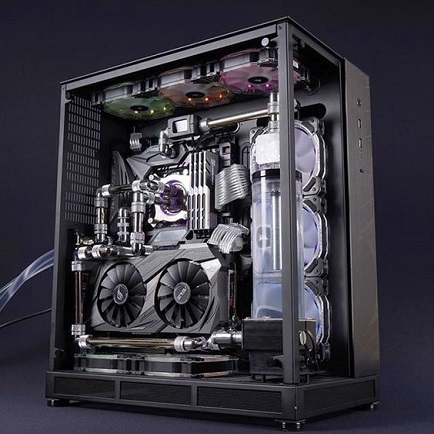When it comes to gaming, having the right hardware can make all the difference. A powerful gaming PC not only enhances your gameplay but also provides a seamless experience with stunning graphics and faster load times. In this guide, we’ll explore the key components of gaming PCs, the benefits of investing in one, and what to consider when choosing your next machine.
Why Choose a Gaming PC?
1. Performance
Gaming PCs are designed to handle the most demanding games with ease. Equipped with powerful CPUs and GPUs, they can run the latest titles at high settings without lag. This performance advantage translates into smoother gameplay, better frame rates, and an overall enhanced experience.
2. Customization
One of the biggest advantages of gaming PCs is their ability to be customized. Unlike consoles, which have fixed hardware, gaming PCs allow you to choose specific components that fit your needs. Whether you want more RAM, a better graphics card, or additional storage, you have the freedom to build or upgrade your system as you see fit.
3. Graphics Quality
With a dedicated graphics card, gaming PCs can deliver stunning visuals and support high resolutions. This means you can enjoy games with vibrant colors, intricate details, and realistic effects, which can significantly enhance engaging.
4. Multitasking Capabilities
Gaming PCs excel not only in gaming but also in multitasking. Whether you’re streaming gameplay, editing videos, or running other applications, a gaming PC can handle it all without breaking a sweat.
Key Components of a Gaming PC
1. CPU (Processor)
The CPU is the brain of your gaming PC. A powerful processor ensures that your system runs smoothly and efficiently. Look for multi-core processors from reliable brands, as they can significantly improve performance.
2. GPU (Graphics Card)
The GPU is crucial for gaming performance. A high-quality graphics card enhances graphics quality and frame rates, enabling you to play the latest games at optimal settings. Brands like NVIDIA and AMD offer a range of options for different budgets.
3. RAM (Memory)
Sufficient RAM is essential for smooth gameplay and multitasking. For gaming, 16GB is generally recommended, though 32GB can be beneficial for more demanding applications or future-proofing your system.
4. Storage
Choosing the right storage solution can impact load times and overall performance. SSDs (Solid State Drives) are faster than traditional HDDs (Hard Disk Drives) and can drastically reduce loading times. A combination of both can offer the best of both worlds.
5. Cooling System
Gaming PCs generate a lot of heat, especially during intense gaming sessions. A good cooling system, whether air or liquid cooling, is vital to keep your components at optimal temperatures and prevent overheating.
What to Consider When Buying a Gaming PC
1. Budget
Determine your budget before shopping for a gaming PC. Prices can vary widely based on components and performance levels. Setting a budget helps narrow down your options and find the best value for your money.
2. Purpose
Consider what you’ll primarily use the PC for. Are you mainly gaming, or do you also plan to stream, edit videos, or use resource-intensive applications? This will help guide your component choices.
3. Future Upgradability
If you plan to keep your gaming PC for several years, consider a build that allows for future upgrades. This means choosing a motherboard with additional slots and ensuring your power supply can handle future components.
4. Brand and Warranty
Choose reputable brands that offer good warranties and customer support. A solid warranty can provide peace of mind, especially for high-investment components like graphics cards.

